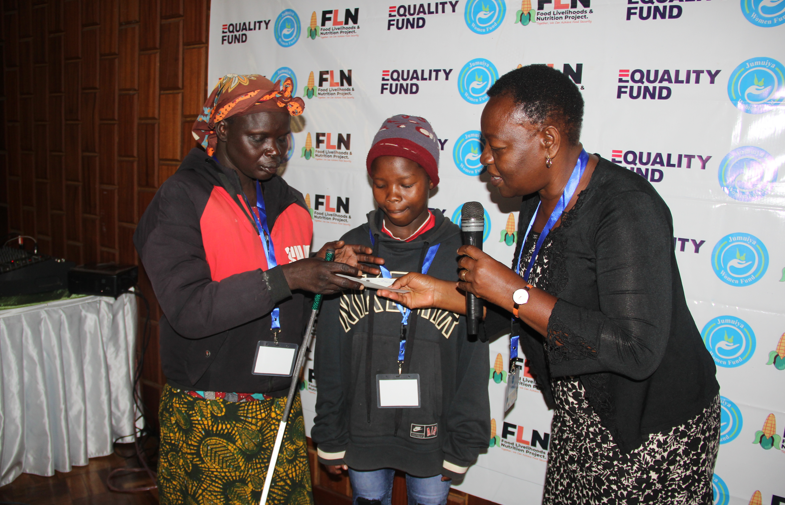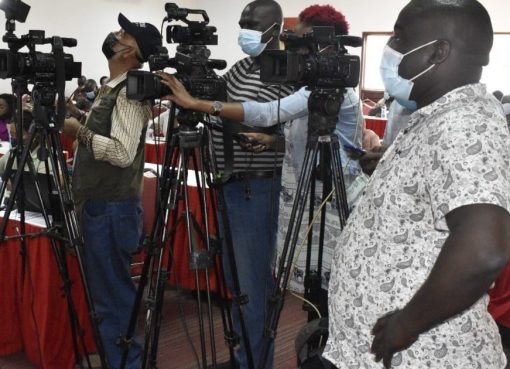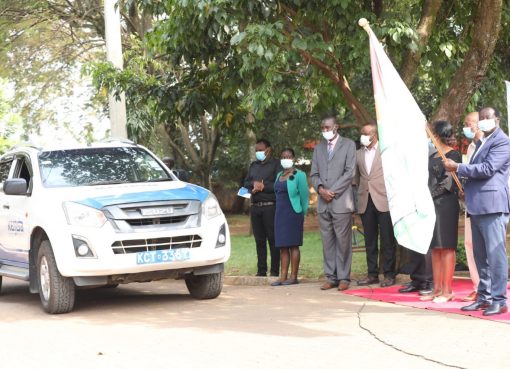Through the production of healthy, diverse food, Community Based Organisation (CBO), Jumuiya Women Fund (JWF), and Equality Fund have launched the Food, Livelihoods, and Nutrition Project (FLN) for vulnerable communities.
The initiative targets children, women, and people living with disabilities (PWDS) to access more sustainable, inclusive food systems and increase resilience to climate change.
It targets to support 300 of the most vulnerable households in six counties—Uasin Gishu, Kericho, Elgeyo Marakwet, Baringo, Homa Bay, and Busia—who suffer food insecurity due to poor agricultural practices, worsened by unpredictable rain and frequent drought, and low income levels, which limit access to agricultural inputs.
During a presentation on the project, the chairperson of Jumuiya Women Fund, Winnie Kiptoo, said that the initiative will focus on providing climate smart agricultural practices and changing nutrition to improve local food security and sustainable livelihoods.
She added that the project will also provide some agricultural resources for the 300 selected households, such as hybrid vegetables and maize seeds.
“The selected households will receive a monthly cash transfer of Sh6, 000 for a period of 6 months and train 100 pilot households on climate smart agriculture and practices, “she noted.
Kiptoo further added that the FNL project, being a short-term emergency intervention, is designed to support the selected households headed by women and families of PWDS with relevant knowledge and skills to enable them to become drivers of their own social and economic transformation of their livelihoods.
“The current droughts and unpredicted rains have been hurting the global economy through rising agricultural and food prices, which has been affecting farmers and consumers, especially the poor communities,” Kiptoo said.
“Currently, Kenya’s national drought appeal from multi-lateral and bilateral agencies represents only 22% of determined needs with a current funding gap of 78%; therefore, through JWF, it will partly contribute to addressing the determined needs of the people affected by food insecurity,” she revealed.
She further noted that the food insecurity challenge was still broad, and more effort is needed both locally and globally to mobilize finances and material resources to tackle the menace in vulnerable populations.
“I therefore call upon our stakeholders to continue rallying and supporting a comprehensive response not only to cushion immediate food insecurity but to put in more investments to implement long term measures for sustainable livelihood and climate change mitigation and adaptation,” she added.
In her remarks, Elizabeth Obanda, Women Economic Empowerment, UN Women, said that to enhance the women farmers’ economic empowerment, they should also be trained on agribusiness, improve post-harvest storage to avoid losses, and be provided with support for market linkages.
“To decrease the vulnerability of these communities, the project should target increasing sensitization on agroforestry as it can address multiple challenges that the farmers face and foster their greater resilience through economic and environmental diversification, “she noted.
By Judy Too





